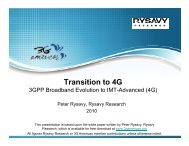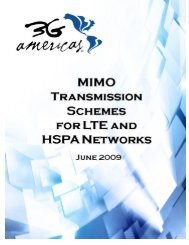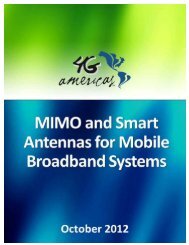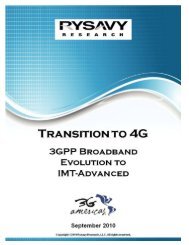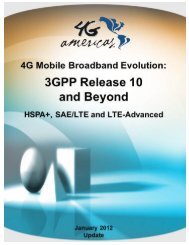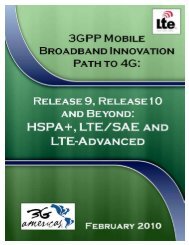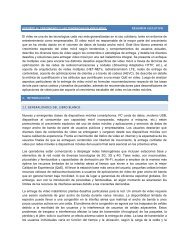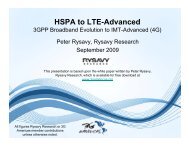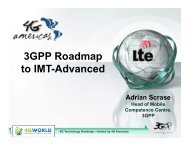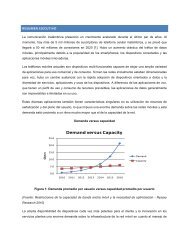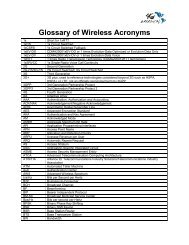Create successful ePaper yourself
Turn your PDF publications into a flip-book with our unique Google optimized e-Paper software.
� Keep track of sessions (either in alerting state, active or held) to be able to perform Access<br />
Transfer of the selected session<br />
� Perform the Access Transfer and update the ATGW with the new media path for the (CS) access<br />
leg, without requiring updating the remote leg<br />
� After Access Transfer, update the SCC AS that Access Transfer has taken place to ensure that<br />
T-ADS has the information on the currently used access<br />
� Handle failure cases during the Access Transfer<br />
After access transfer, and based on local policy, the ATCF may remove the ATGW from the media path.<br />
This step requires remote end update.<br />
If MSC Server assisted mid-call feature is used, then the SCC AS provides required session state<br />
information on alerting, held and/or conference state for any transferred session.<br />
The ATCF shall not modify the dynamic STI that is exchanged between the UE and SCC AS.<br />
ATCF ANCHORING<br />
The following implementation methods could be used to determine if the ATCF should be including itself<br />
during registration:<br />
� If UE is roaming, based on the roaming agreement (e.g., home operator also support SRVCC<br />
enhanced with ATCF in SCC AS and HSS)<br />
� Based on local configuration (e.g., if operator always deploys IBCF, MGCF etc. with media<br />
anchor for inter-operator calls)<br />
� Based on registered communication service and media capabilities of the UE<br />
� Based on the access type over which the registration request is sent<br />
NOTE 1: If the ATCF decides not to include itself during registration, it will not be possible to use the<br />
ATCF enhancements during and after the registration period.<br />
The following implementation methods could be used to determine if the ATCF should anchor the media<br />
in the ATGW for an originating or terminating call:<br />
� Based on whether the UE is roaming or not<br />
� Based on local configuration (e.g., if operator always deploys IBCF, MGCF etc. with media<br />
anchor for inter-operator calls)<br />
� Based on the communication service and media capabilities used for the session<br />
� Based on knowledge of which network the remote party is in<br />
� Based on the access type over which the request or response is sent<br />
� Based on the SRVCC capability of the UE<br />
www.4gamericas.org February 2011 Page 74



